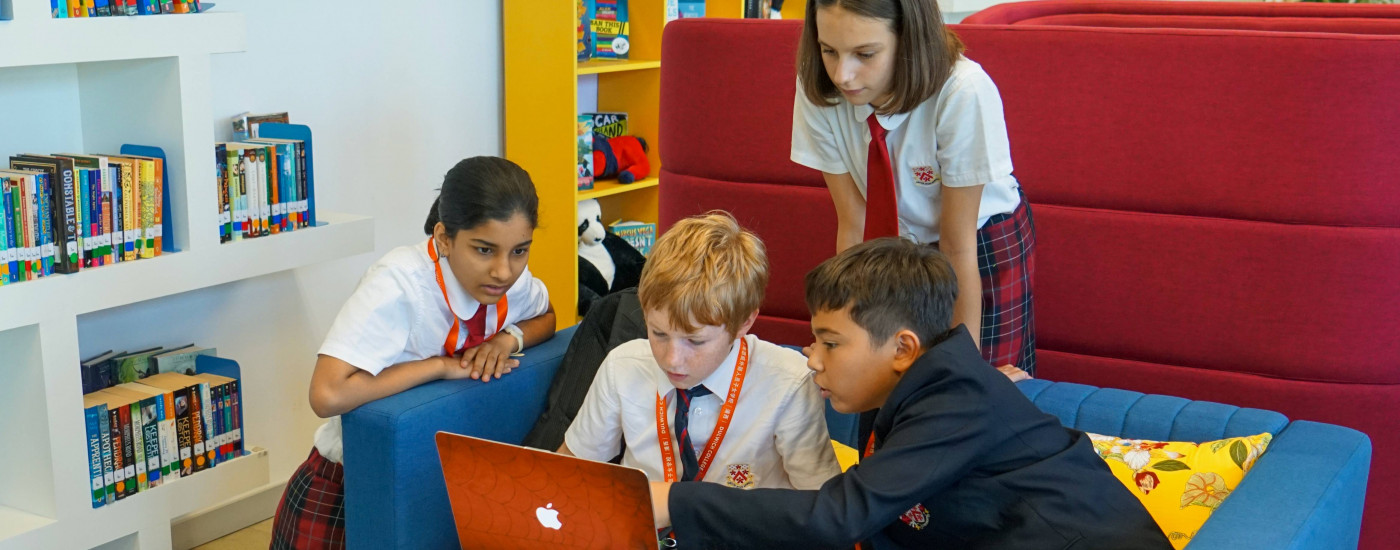Supporting Study Habits

“When we allow bad habits to creep in, it dramatically impedes our path to success and puts obstacles in the way of our own wellbeing.”
Stephen Hurworth,
Dulwich College Beijing.
This week in the Senior School, Ms. Sneath presented a compelling workshop for parents and students about developing good habits to encourage emotionally healthy and happy learners. There were many valuable points from her presentation which I wish to reinforce with you here.
Routines.
No matter the age of the child, the need for routines are key. Consistent routines at home will support your child in being self-reliant, and without the worry of the day to day organisation – you can focus more on connecting and discussing the more important matters. A routine makes daily living easier for all. Set the home routine and then TALK about it with your child. If you are going to be changing routines, TALK about it with your child. Let them “buy into” the routine and have ownership of it.
Some basic routine advice from the College that your child should follow:
- Have dinner at a fixed time each night.
- Review your Homework Planner with parent before starting homework.
- Do homework at a fixed time in a fixed area; in an open family area and not in a closed bedroom.
- Prepare uniform, school bags, water bottle for the following day – the child should do this, not the parent.
- Please sleep for 9-10 hours per night. Senior students need this.
- Have a proper breakfast. Eggs, milk, bread, cereal, noodles...Make it substantial, please.
Talk.
Teens get tired and stressed about a range of issues that may not seem logical to parents. Take time to talk – ask why your child is tired, or what is causing stress for them. Whilst you may not be able to fix the problem immediately, the fact that you are listening demonstrates to them that you are interested in their wellbeing.
Monitor screen time.
According to Dr Travis Bradbury, it takes human beings 15 consecutive minutes to focus before we can fully engage in a task and be “in the zone”. Productivity takes that much time to kick in so please help your child be in the zone and stay in the zone – mobile phones, wechat, tv in the background will all distract your child from their productivity. Please monitor this at home. Screens are needed for some, not all homework. We try to be very careful about setting homework so that it does not need screen input.
(Dr. Travis Bradberry is the award-winning co-author of the #1 bestselling book, Emotional Intelligence 2.0)
Be a motivator.
Students do need praise but often adult’s praise comes only when the result is good. Whereas, often praise is needed more for the effort contributed, rather than for the result achieved. Going from good to great takes commitment and hard work, so please take time to understand your child’s progress so you can apply praise where it is needed most. (We cheer loudest when cyclists are halfway up the mountain because that is when they need our encouragement the most.)
Learn to be worldwise together.
Your child is learning a rigorous international curriculum and it is vital that she/he be exposed to global business and social issues however much of what happens in the world may require adult input so please help your child by watching or listening to global news together.
www.teenkidsnews.com – weekly news show hosted by teens.
www.kids.nationalgeographic.com – child friendly version of the National Geographic.
www.bbc.co.uk/newsround - daily news show for children.
https://scholasticnews.scholastic.com – news round up for children.
We will continue to speak with your child about developing successful routines and habits at school. I sincerely hope that these practices are supported at home.





